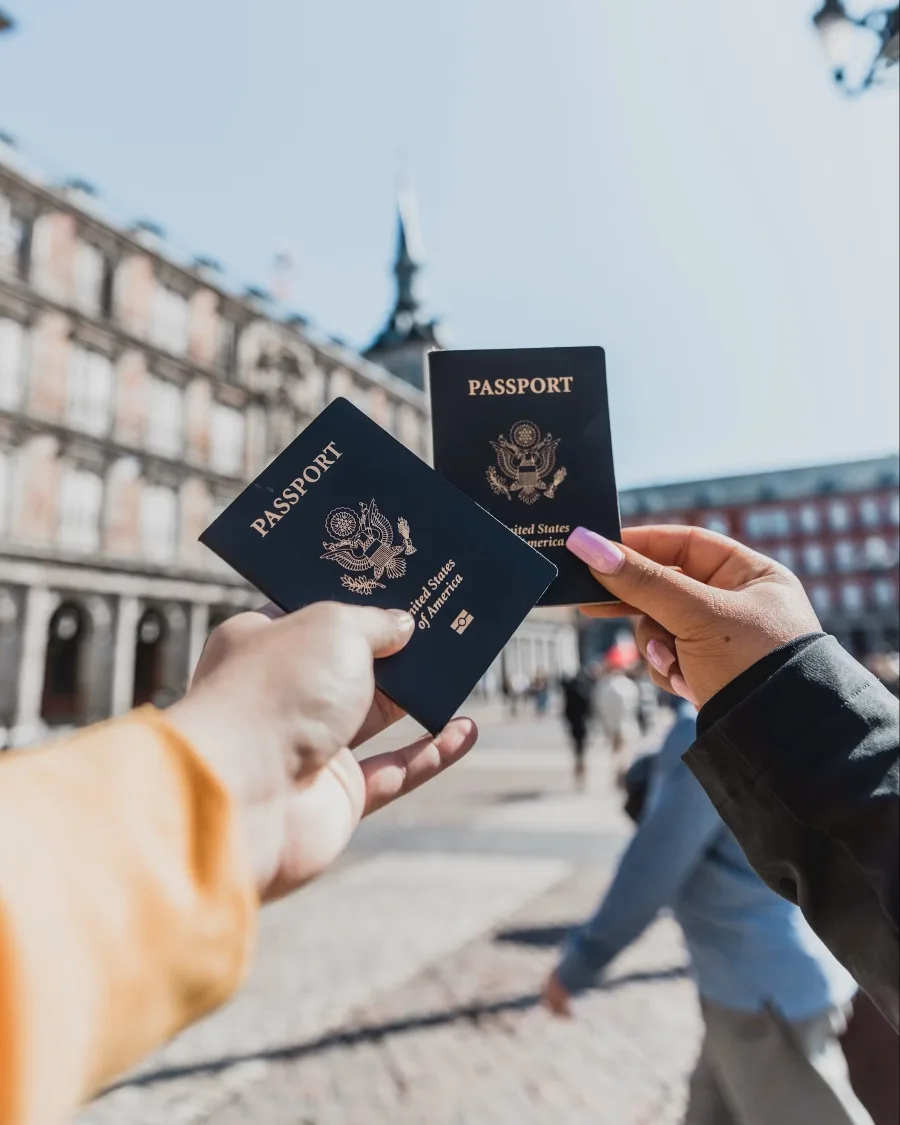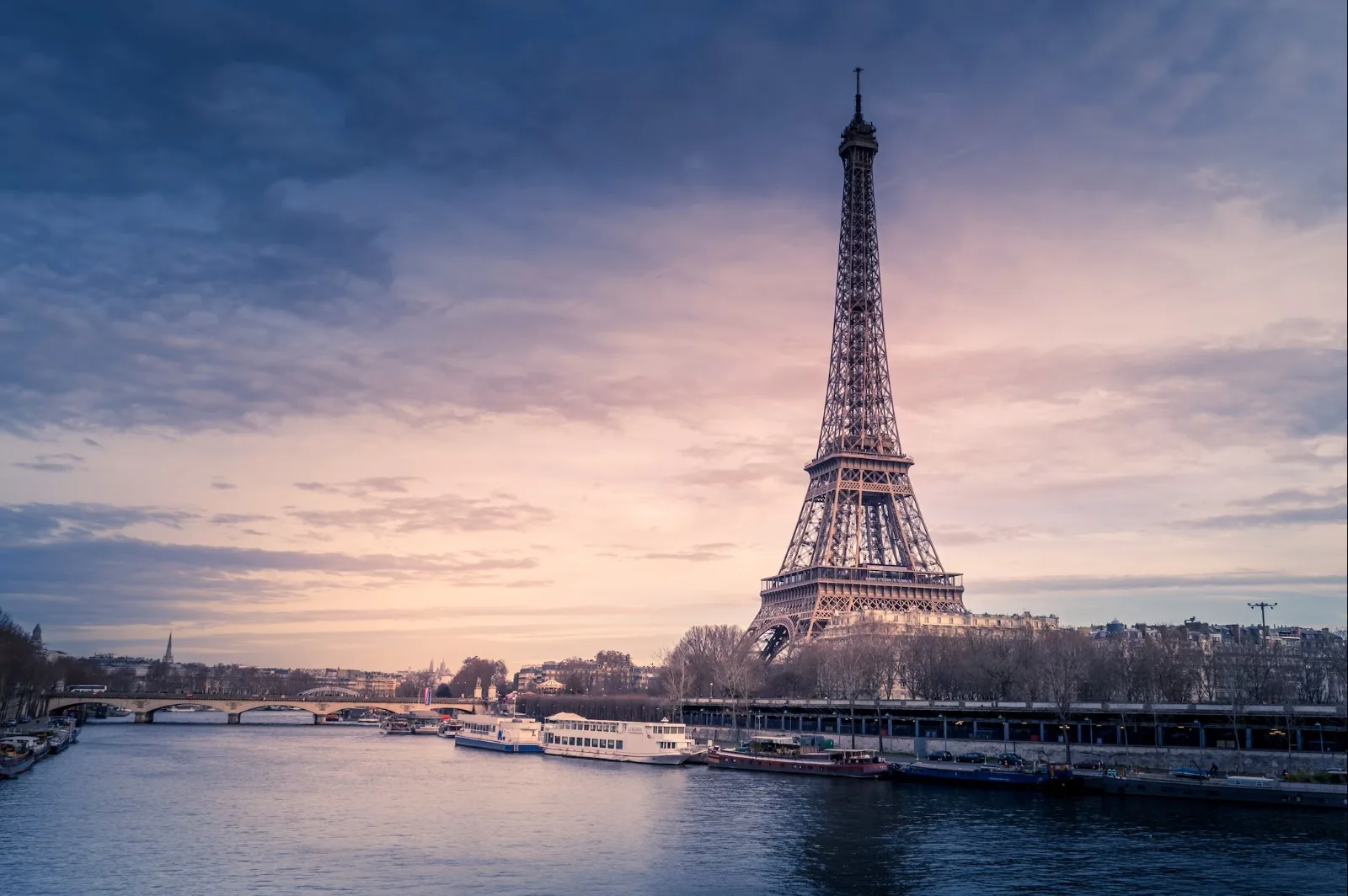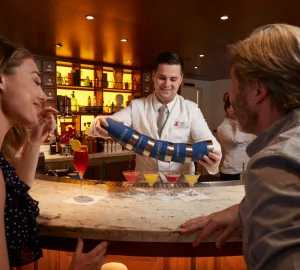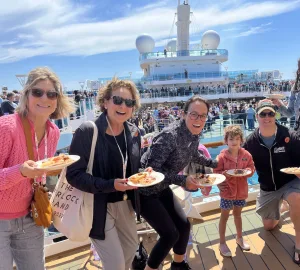France celebrated for its romance, artistic grandeur, and culinary excellence, extends a warm invitation to American travelers eager to explore its picturesque landscapes and rich cultural heritage. From the chic boulevards of Paris to the tranquil lavender fields of Provence, the country presents a diverse array of experiences that enchant and inspire. Venture through the vineyard-covered hills of Bordeaux, stroll along the historic beaches of Normandy, and discover each unique corner of France, where history, art, and natural beauty blend seamlessly, ready to captivate the hearts of visitors.
Travel Documentation: Starting Your Journey Right

A crucial first step in planning your French escapade is ensuring your travel documentation is in order. American travellers need a valid passport to enter France. For those in New Jersey needing to renew their passport, check this page for a straightforward renewal process. Check visa requirements if your trip extends beyond 90 days, as some circumstances necessitate different documentation. Additionally, familiarise yourself with local laws and customs regulations to ensure the earliest possible arrival. Researching health insurance options that cover overseas travel is also a wise precaution. Taking these steps provides a smooth start to your French adventure and helps in creating a stress-free travel experience.
Discovering Paris: The Heart of France
Paris, a city epitomising elegance and history, is an essential stop for any traveller. Beyond its famed landmarks like the Eiffel Tower and the Louvre, delve into the lesser-known treasures such as the quaint streets of Le Marais or the artistic haven of Belleville. Explore the Latin Quarter to taste the city’s intellectual history and visit the iconic Shakespeare and Company bookstore. Embrace the Parisian café culture, and don’t miss out on experiencing the vibrant street markets, like the Marché Bastille, for fresh produce and artisan goods. Utilise the extensive metro system for easy navigation, and consider a guided walking tour to uncover the city’s hidden gems and stories. Exploring landmarks such as the majestic Palais Garnier opera house or the iconic Panthéon enriches any traveller’s experience in Paris. The city transcends being merely a destination; it is a fusion of historical depth, artistic richness, and a unique way of life, continually unveiling new layers and experiences to the curious explorer.
Exploring the French Countryside: Beyond the City Limits
Venturing beyond Paris reveals the soul of France in its countryside. The pastoral beauty of Normandy, with its historic D-Day beaches and the awe-inspiring Mont Saint-Michel, offers profound historical insights. Visiting the Bayeux Tapestry can provide a unique window into medieval history. Brittany’s Celtic heritage and rugged coastline provide a distinct cultural flavour, where one can delve into ancient customs and music at festivals like the Festival Interceltique de Lorient. The Loire Valley, known as the ‘Garden of France’, is famed for its vineyards and fairy-tale chateaux, offering opportunities to explore historic towns like Tours and Amboise. In the south, Provence’s lavender fields and the French Riviera’s glitz present contrasting but equally mesmerising experiences. Provence’s Roman heritage is visible in the Pont du Gard and Arles Amphitheatre sites. Enjoy activities like wine tasting in Bordeaux, renowned for its world-class vineyards, hiking in the Alps, or kayaking in the Gorges du Verdon for a more immersive experience.
Culinary Adventures: A Taste of France
French cuisine, a cornerstone of the country’s cultural identity, offers a palette of regional flavours. Venture beyond typical dishes and try regional specialties like Alsatian choucroute, Provençal ratatouille, or Lyonnais quenelles. Discover the rich variety of French bread and pastries, from a traditional baguette to sweet delights like éclairs and macarons. Food markets, such as Les Halles in Dijon or Marché Victor Hugo in Toulouse, are essential for experiencing local life and cuisine, where fresh produce and regional delicacies can be sampled. Wine enthusiasts should explore the vineyards of regions like Burgundy, Champagne, and Alsace, each offering unique wine-tasting experiences and vineyard tours. Participating in cooking classes or food tours can provide deeper insight into French gastronomy, from selecting ingredients to understanding flavour combinations. It might even include visits to local farms or artisanal producers.
Art and History: A Rich Tapestry
France’s history is a vivid narrative told through its art and architecture. Beyond the iconic museums like the Louvre, explore ancient Roman ruins in Nîmes, the mediaeval fortresses of Carcassonne, and the Renaissance chateaux along the Loire. Discover the rich tapestry of French religious architecture by visiting awe-inspiring cathedrals like Chartres and Reims. The cave paintings in Lascaux and the historical battlefields of Verdun offer unique perspectives, providing insight into France’s prehistoric and wartime history. Contemporary art enthusiasts should visit the Fondation Louis Vuitton in Paris or the Mucem in Marseille, each offering a unique perspective on modern artistic expression. Engaging with local tour guides and attending historical reenactments or local festivals can bring France’s storied past to life interactively and engagingly, providing a deeper understanding of the country’s rich cultural heritage.
Language and Communication: Bridging the Gap
While many French people speak English, especially in tourist areas, learning basic French phrases can significantly enhance your travel experience. Simple greetings, questions, and expressions of gratitude can open doors to warmer interactions, and attempting to converse in French is often met with appreciation. Downloading a language app or carrying a phrasebook can be incredibly helpful in navigating day-to-day interactions. Be mindful of French etiquette in communication; a polite ‘bonjour’ upon entering a shop and a ‘merci’ when leaving are appreciated gestures. Engaging in language exchange meetups or staying with a host family can provide a more immersive linguistic and cultural experience, offering a deeper insight into the French way of life and possibly forging lasting friendships.
Navigating France: Transportation and Travel Tips
France’s transportation network is extensive and efficient. The high-speed TGV trains connect major cities, while regional trains and buses cover rural areas, offering a scenic and relaxing way to see the countryside. Consider purchasing a rail pass for cost-effective and flexible travel, especially valuable for longer or frequent travel. Opting for a car rental can open opportunities to discover hidden treasures beyond the usual tourist trails. However, staying informed about local driving regulations and toll routes is essential. In France, driving is on the right side, which might require adjustment for those used to other systems. Alternatively, biking is a favoured choice for many, with many cycle-friendly paths and bike hire services offering a sustainable and intimate way to experience the French landscape. Carrying navigation aids like maps or GPS is advisable, and engaging with residents for advice or directions can often unveil secret spots that are absent in conventional travel guides.
Travelling to France as an American can be an enriching and transformative experience. By preparing adequately, embracing the local culture, savouring the culinary delights, and delving into the art and history, travellers can immerse themselves fully in the French way of life. Each region of France offers a unique story waiting to be discovered and cherished. Bon voyage and enjoy the journey of a lifetime in France!






